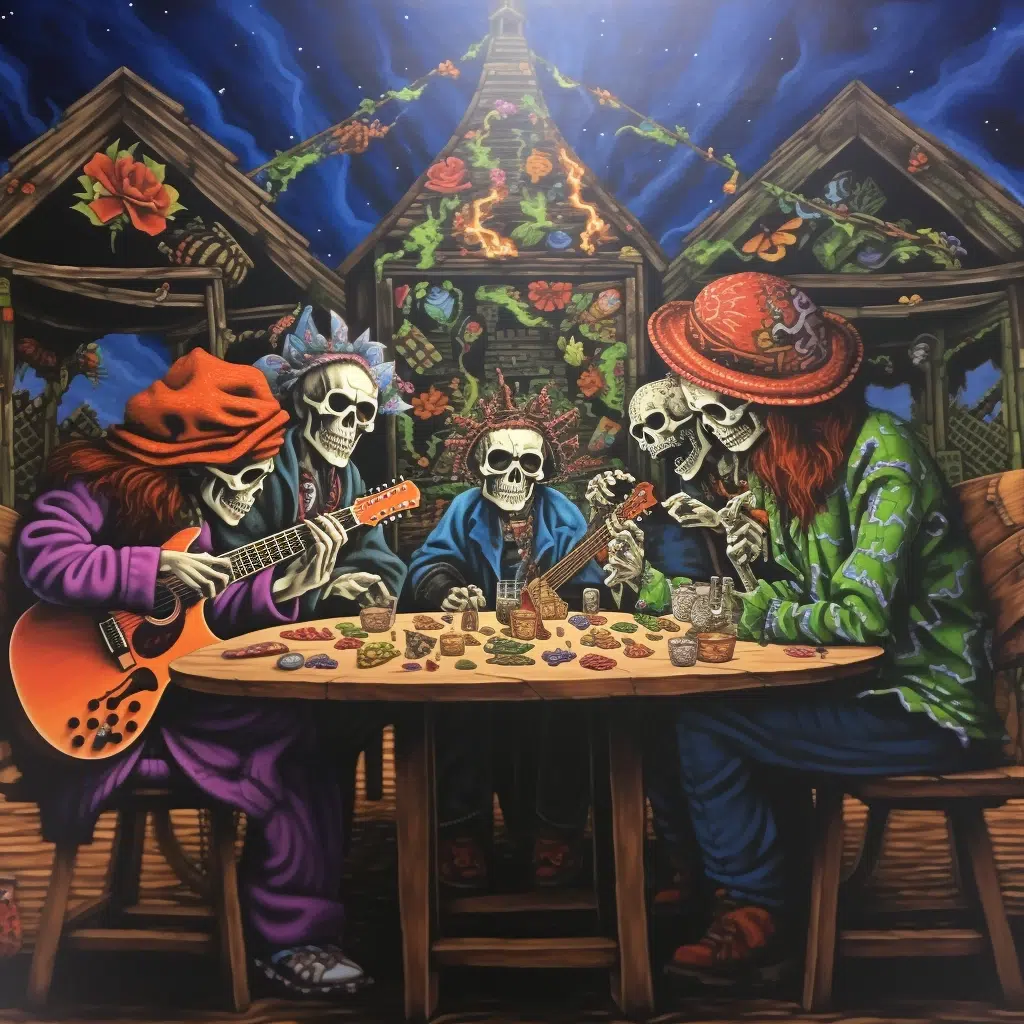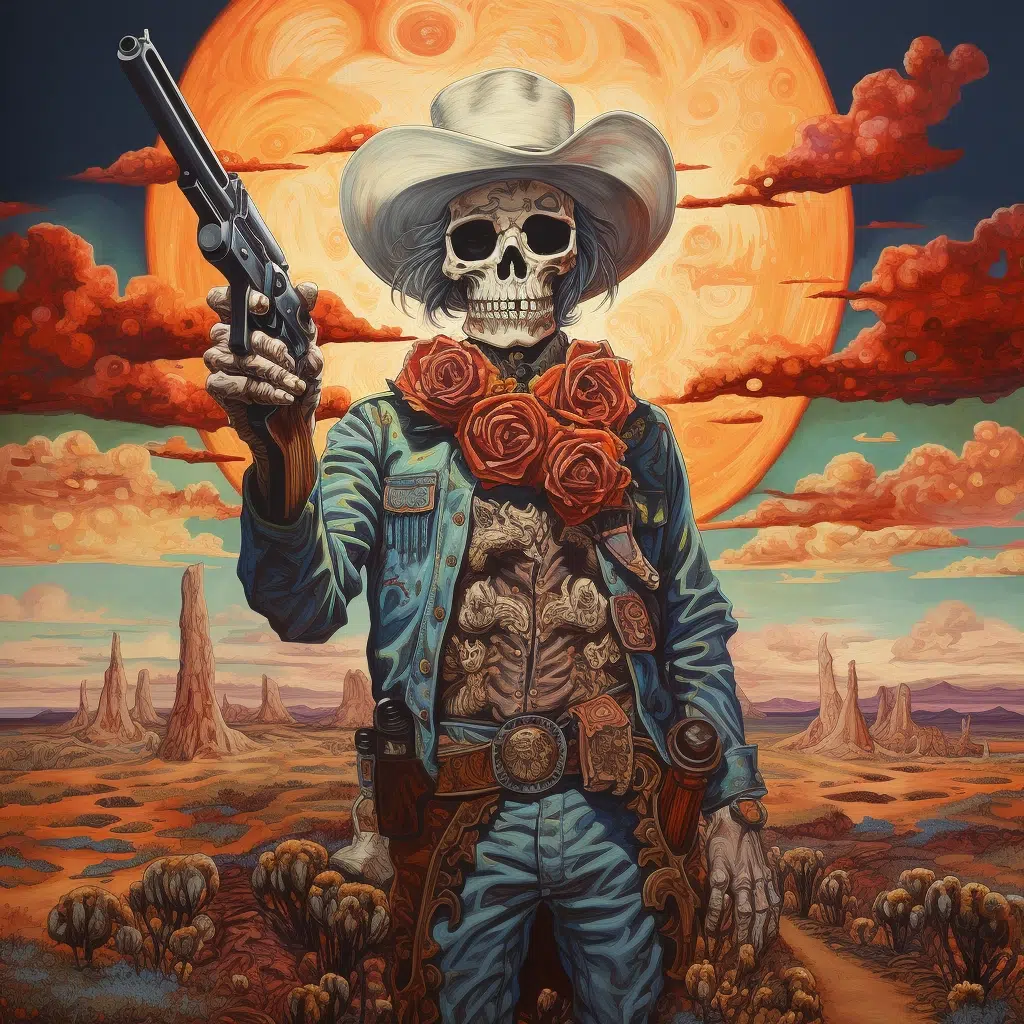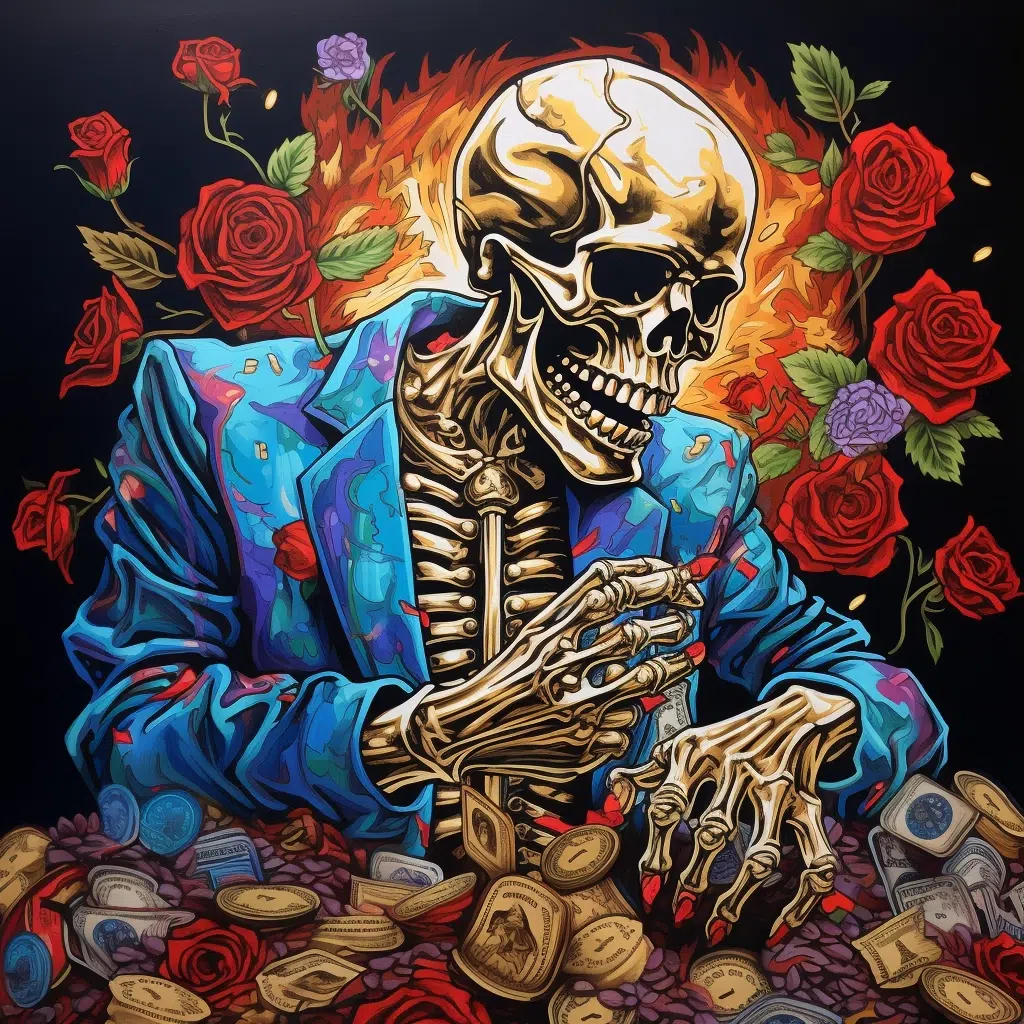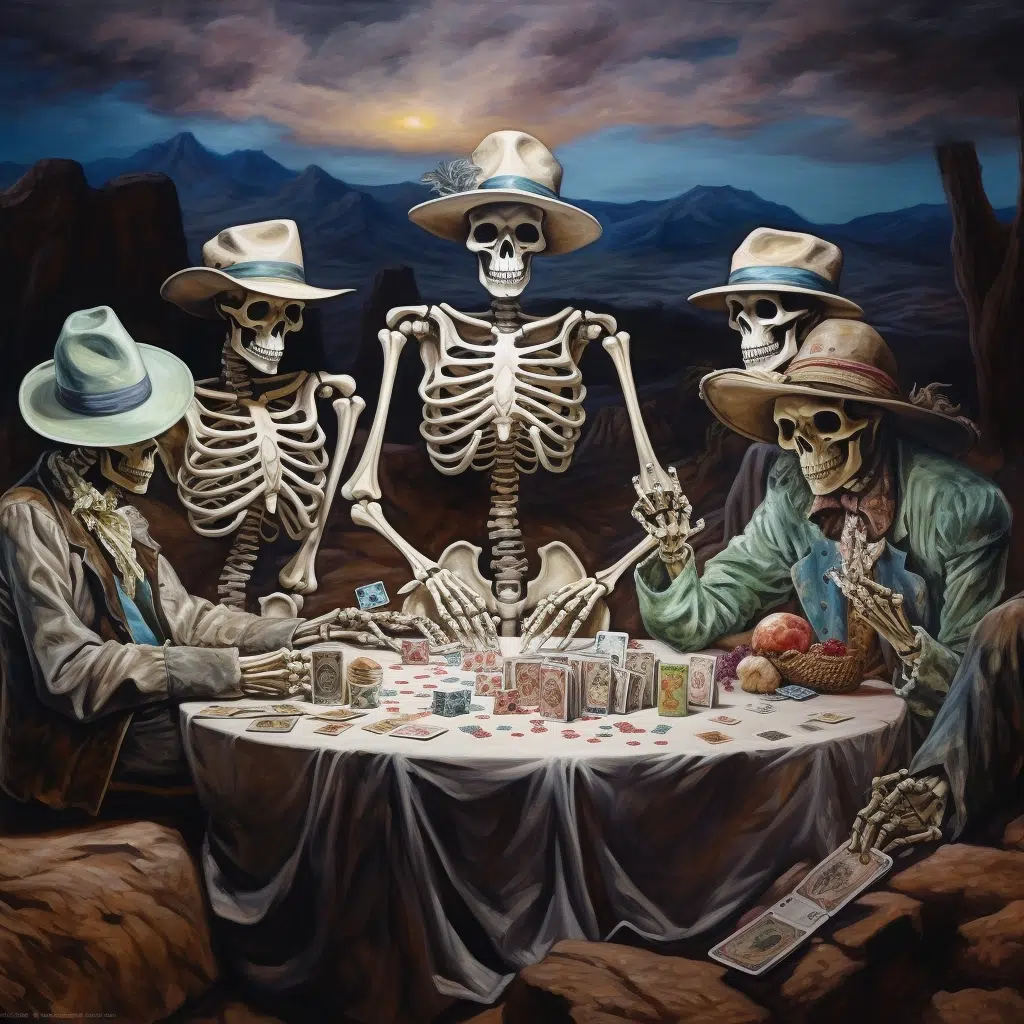The Meaning of the Grateful Dead’s “Loser”

The Robert Hunter and Jerry Garcia-penned gambling song “Loser” maintained a steady and welcome presence in the Grateful Dead catalogue from its first appearance on February 18th, 1971, right up until the final tour in the summer of 1995. A studio version of the iconic track appeared on Jerry’s 1972 debut solo album, Garcia.
“Loser” represents a subset of Grateful Dead music where Garcia invokes a character that Robert Hunter has created, giving the effect that he is singing from that perspective. One of Garcia’s great strengths was in his ability to present himself as a sort of ‘spirit guide’, leading listeners on a journey through Hunter’s lyrics.
While “Loser” doesn’t have the same emotional impact as a song like “Wharf Rat”, which also features ‘spirit guide’ Jerry, it’s always an exciting listen, and the solo leading into the second chorus often offers some of his finest work on guitar.
“Loser” Lyrics Meaning
Lyrically, “Loser” tells the story of an embattled gambler who is down on his luck and feeling a bit delusional about it. He sings of being a winner, but contextual clues as well as the song’s title reveal that he truly isn’t winning much if at all, and things have gotten pretty heated.
As we know, this is presented with a sort of smoky barroom feel, where Garcia assumes the position of this gambler and explains his predicament with such tenderness that you want to believe he’s going to win this time.
Let’s see how Hunter’s lyrics accomplish this, starting with the first verse:
If I had a gun for every ace I have drawn
First verse to “Loser” by the Grateful Dead.
I could arm a town the size of Abilene
Don’t you push me, baby, because I’m moanin’ low
And you know I’m only in it for the gold
Right away, weapons enter the story with the narrator singing about his gambling experience, suggesting that he’s drawn enough aces to arm the whole town of Abilene.

According to the Annotated Grateful Dead lyrics, this Abilene he sings about is the cattle yard town of Abilene, Kansas (population 6,460). Settled in 1858, the city was and is an important railhead of the Union Pacific Railroad, loading cattle and grain onto trains.
The larger, more well-known city of Abilene, Texas (population 170,000), founded in 1881, was named after the Kansas town because it served a similar purpose as a cattle yard town.
Given the imagery and the general gunslinging, western feel of the song, we can assume that “Loser” takes place during the height of the wild west, with revolvers on the hips of each person at the poker table.
After expressing his experience as a gambler, he encourages the listener not to press, because he’s “Moanin’ Low”. This is a reference to the love standard written by Ralph Rainger and Howard Dietz in 1929, with lyrics that present a sense of desperation. This reveals that our narrator is in a dire situation, and he really needs the money.
The second verse makes this even more clear:
All that I am asking for is ten gold dollars
Second verse to “Loser” by the Grateful Dead.
And I could pay you back with one good hand
You can look around about the wide world over
And you’ll never find another honest man
Here he is asking for ten gold dollars on loan, promising to pay back his creditor with just one good hand’s worth of winnings. To further illustrate his intentions, he claims to be the most honest man you’ll find in the whole entire world.
The chorus is up next, revealing that this may be his last chance:
Last fair deal in the country, Sweet Suzie
Chorus to “Loser” by the Grateful Dead.
Last fair deal in the town
Put your gold money where your love is, baby
Before you let my deal go down
In these lyrics, Garcia addresses a lover, claiming that if she really loved him like she said she does, she would lend him the money he needs. It seems that if he doesn’t get the money, he’s going to be really screwed, and he genuinely believes that one more hand could save him.

Note that the “Sweet Suzie” line was only sung by Garcia during versions throughout the 70s, and only intermittently at that. After 1/10/79, Garcia never sung it again.
Next we have the third verse, where the lyrics again suggest the gravity of their situation:
Don’t you push me, baby, ’cause I’m moanin’ low
Third verse to “Loser” by the Grateful Dead.
And I know a little something you won’t ever know
Don’t you touch hard liquor, just a cup of cold coffee
Gotta get up in the morning and go
Garcia repeats the “Moanin’ Low” reference, emphasizing his desperation. He tells his lover that he’s privy to information she won’t know — suggesting that he has not told her just how serious things have gotten.
His instructions to skip the liquor and just drink coffee means that not only does he want to maintain his focus, but as he says, he wants to be ready to go in the morning.
While nothing is directly stated here, the implication is that he has received a threat against his life due to outstanding gambling debts, and this game, which he is about to lose, represents his last chance to make things right before his creditors lose patience and come after him.
Verse four brings us into the moment, into the narrator’s point of view:
Everybody’s braggin’ and drinkin’ that wine
Fourth verse to “Loser” by the Grateful Dead.
I can tell the Queen of Diamonds by the way she shines
Come to daddy on an inside straight
Well I got no chance of losin’ this time
Looking around the room, we see the other people having a good time, drinking and talking a big game. The narrator, however, is laser-focused on the game. He sees what he’s sure is the Queen of Diamonds coming his way — something he can discern from the glimmer of the card itself.
In this context, when Garcia sings of an “inside straight”, he is referring to a very powerful hand in poker that includes having a hand containing four out of five cards in sequential order.

Since he is needing a Queen of Diamonds, specifying the suit, and suggesting that he can’t lose if he gets it, we could assume that he may be hoping specifically for a “royal flush”, which is the highest hand in poker. This would mean that he had a 10, a Jack, a Queen, a King, and an Ace of Diamonds.
Of course, his desperation for this, the preparation for leaving at dawn, and the reality of how unlikely of a hand this truly is, implies that he really is not going to win this game and he knows it.
At this point, Garcia, or your favorite tribute band guitarist, rips the big solo that all of the tension in the song thus far has built up to. The powerful reprise of the chorus coming at the height of it.
When the band cools down from the Garcia face-melt, he sings a slower reprise of the final verse and the song comes to a close.
Listen to the studio version of “Loser” from Garcia below, and check out a few of my favorite live versions below that. Let us know any we should check out in the comments!
“Loser” (Garcia, 1972)
“Loser” (4/14/72)
From the famous Europe ’72 tour.
“Loser” (12/29/77)
While many prefer the 5/8/77 and 9/3/77 versions of this song, from two of the most famous shows of the year, the solo on this one places it on this list over the other two, also excellent versions.
“Loser” (10/11/80)
This is the version from the 1981 live album Dead Set containing recordings from October 1980. The “Loser” here comes from the Warfield Theatre. This album also has one of my favorite versions of “Brokedown Palace”.